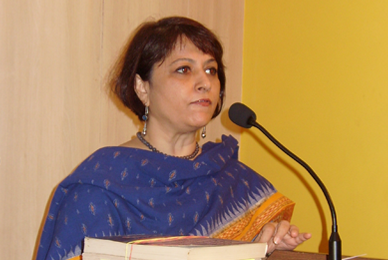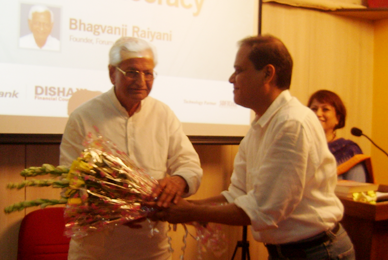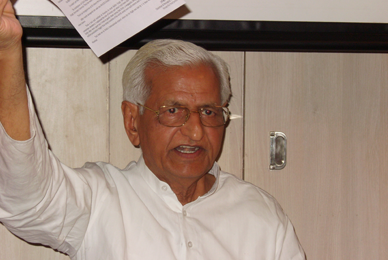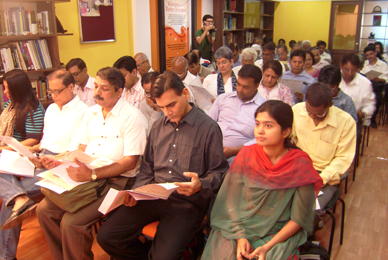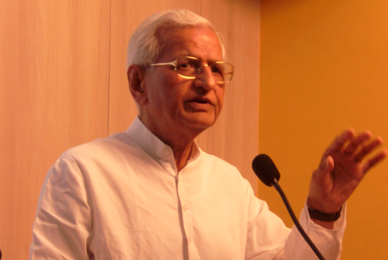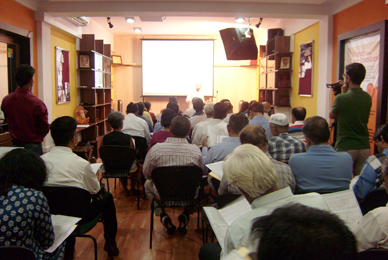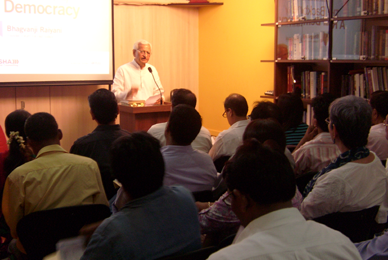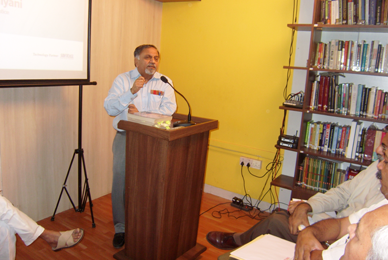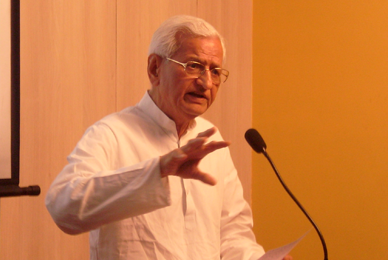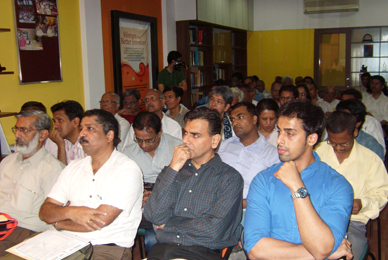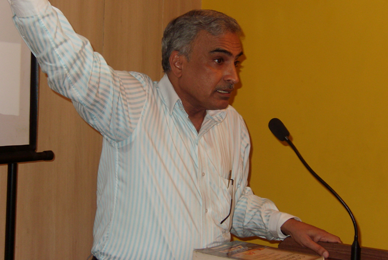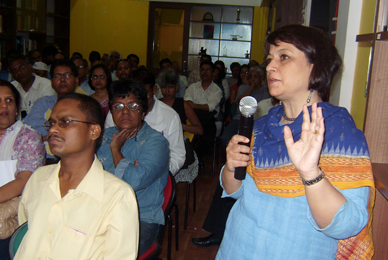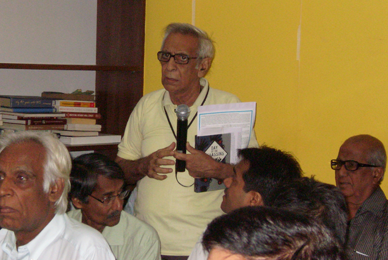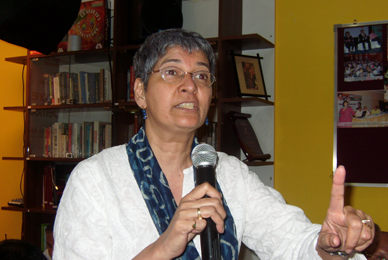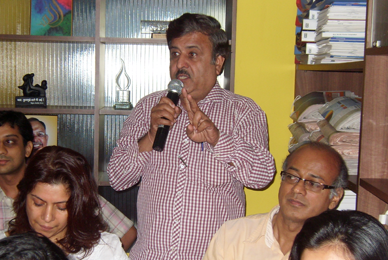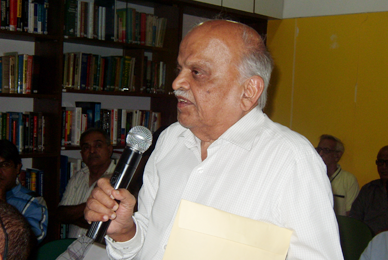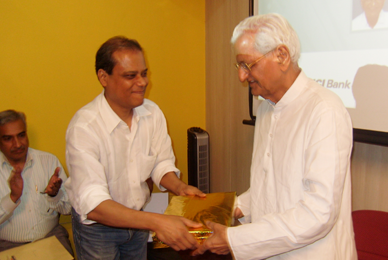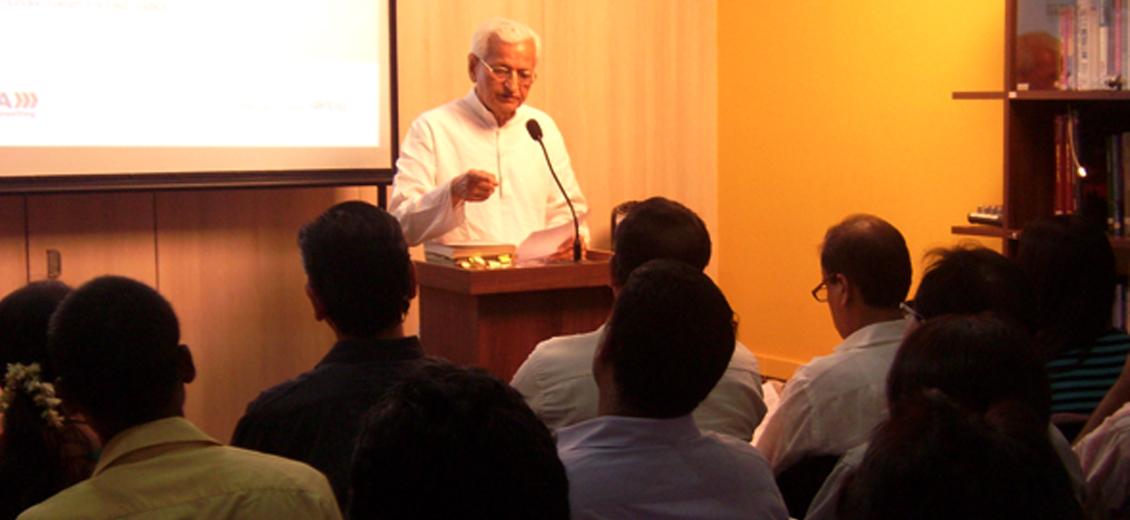
Bhagvanji Raiyani is not a lawyer, but, even at 75, he is regularly arguing cases, having filed over 100 public interest litigations (PILs). In Moneylife Foundation’s seminar on Judicial Reforms: The Backbone of a Real Democracy, Mr Raiyani outlined the various problems that exist in the system and explained why the citizens of India shouldn’t just stand by and watch. He began the session by passing around a brochure that, aside from the history and plans of Forum for Fast Justice, contained a tally of the number of vacancies in the courts.
After letting the audience skim through the document for five minutes, Mr Raiyani said, “You can see in the brochure that 30% seats are vacant in the Supreme Court and high courts. The percentage is a little higher for the lower courts. For example, in Allahabad High Court, there are 160 vacancies, but only 34 judges are working. Who is responsible for filling up the vacancies? The judiciary itself. The Chief Justice knows, of course. For example, the Bombay High Court advertises positions in the lower courts in newspapers. In 2010, 100 vacancies were advertised and 100 judges were employed. Again in 2011, 100 positions were advertised, but only 40 were filled. For 2012, the number dropped to 55 out of 159 vacancies.”
Mr Raiyani says that despite being unable to fill up the positions on first attempt, no further steps are taken to ensure that the positions are taken. He says, “It’s just forgotten about by the judiciary, parliament and government. Something needs to be done. Another problem is that intelligent lawyers aren’t coming forward. One simple explanation is that the salaries are low. Pre-independence, the salary was Rs3,500. 20 years ago, the salary had been raised to only Rs4,000. Now it is high, at around Rs1 lakh, but that’s what intelligent lawyers earn in an hour. In the Supreme Court, lawyers charge Rs5 lakh an hour. So the salaries will need to be increased if we are to see intelligent people take up these positions.”
The Times of India recently published an article claiming that 3.3 crore cases are pending in the courts. It projected that this figure would increase to 15 crore by 2040. Mr Raiyani says that with so many cases pending and so many positions vacant, judges are severely overworked. He said, “In 2001, the Judges Association of India filed a PIL about their workload. They said that they couldn’t handle the crores of pending cases. In the UK, it said there were 51 judges per million people. In Canada, it was 75, in the US, 117. In India, the figure was merely 10.6 judges to a million people. They got a favourable order. The number was to be increased, but nothing has happened. There are so many vested interests that the end result seems unattainable. The Supreme Court is sleeping, the lawyers don’t want this either.”
As the founder of the Forum for Fast Justice, Mr Raiyani has been campaigning for judicial reforms for several years now. He said, “There is so much that is wrong with the system. For example, divorce cases of Muslims and Christians are handled by the high courts. All divorce cases must only be decided in the family courts. The high courts must handle appeals. Another problem is that most courts work only one shift. Some start at 11am and end at 5pm. Their productivity could be doubled. The nation needs the judges to work more.”
Justice Krishna Iyer, one of the most eminent judges produced by India, has said that even kirana shops are more organised than the lower courts. Mr Raiyani said, “If you go to the courts you’ll find that much is in disarray. Judges who have been transferred to another court still have notice boards, litigants aren’t informed of changes in timings or holidays.”
To what was being said about inefficiency in the courts, some lawyers present in the crowd took offence. Advocate Bapoo Malcolm, who delivered Moneylife Foundation’s last seminar, on Wills and Nominations, said, “Our courts aren’t perfect, but it is wrong to berate the judiciary in this fashion. The very reason we can sit here and talk about this is because our judiciary is protecting what is enshrined in our Constitution.”
Shailesh Gandhi, former Chief Information Commissioner, also discussed the problems in our judicial system, focusing on the unchecked granting of stays and adjournments. Lastly, Mr Raiyani answered the questions posed by one participant interested in filing a PIL himself. The question was regarding the costs of filing a PIL. Mr Raiyani said, “The cost of a PIL is insubstantial. You need stamps worth Rs250. Once this is done, you can argue the case yourself. If you wish to withdraw the case at any time, you can do so.”


